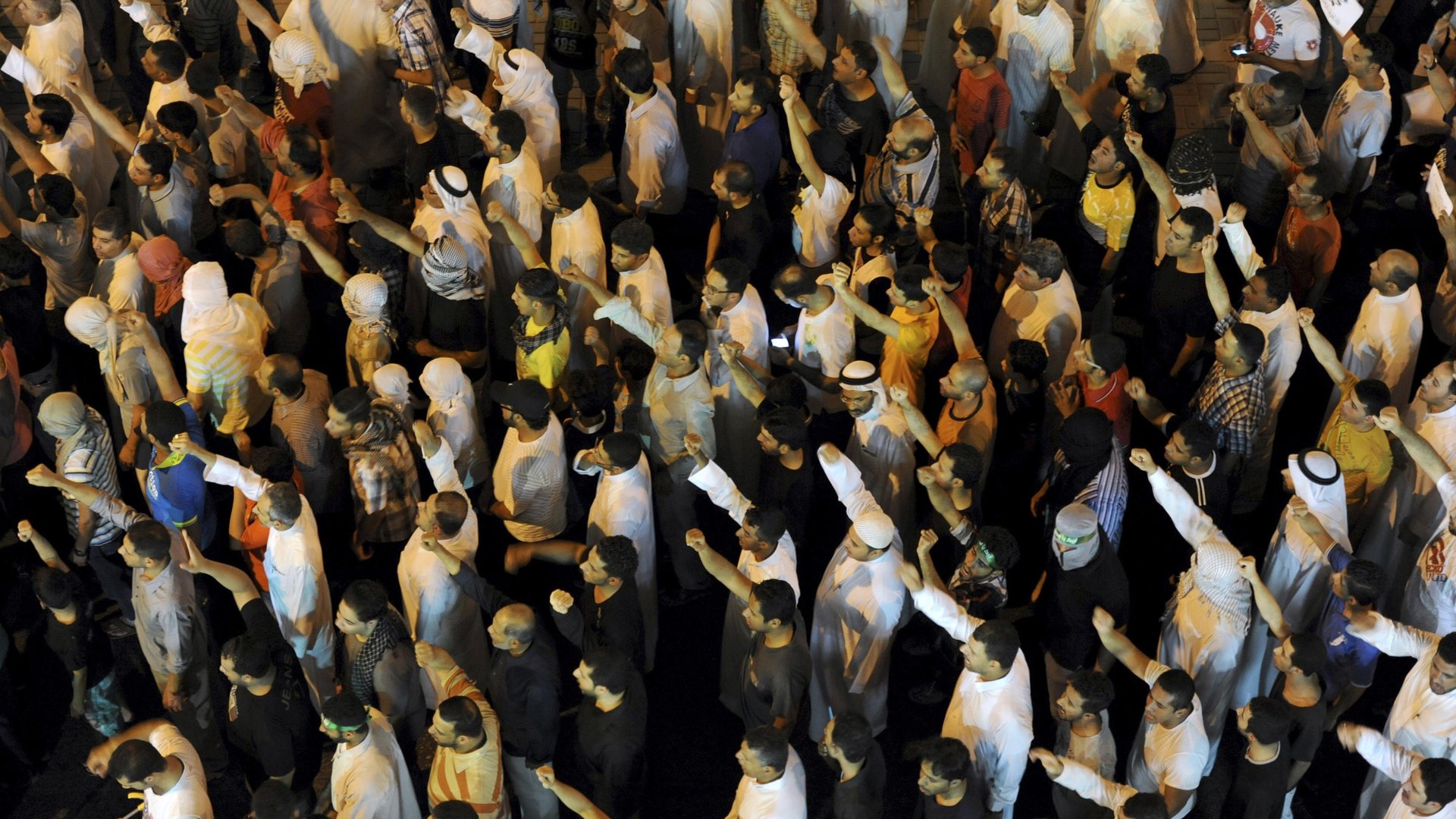The Saudi regime’s economic stimulus won’t help the people who really need it
In 2011, the Saudi Arabian government was afraid. There were pro-democracy uprisings all around the Arab world, even in neighboring Bahrain. What did the Saudi government do? It announced a $130 billion economic stimulus package, purportedly aimed at raising living standards.


In 2011, the Saudi Arabian government was afraid. There were pro-democracy uprisings all around the Arab world, even in neighboring Bahrain. What did the Saudi government do? It announced a $130 billion economic stimulus package, purportedly aimed at raising living standards.
So far, the government has pumped money into unemployment benefits, funding for students, and has invested in 500,000 new homes for the country’s poorest citizens. More recently, it was announced that Saudi Arabia’s capital city, Riyadh, was set to receive the biggest city-wide metro system in the world.
But it’s been widely acknowledged that the economic stimulus was an attempt to quell any potential uprisings in Saudi Arabia. It has been called a “smoke and mirrors” strategy by Ali al-Ahmed, the founder and directer of the Institute for Gulf Affairs.
In an interview with Quartz, al-Ahmed heavily criticized the Saudi regime, describing the royal family as “mocking the population” through making promises that they have not delivered on:
The Saudi government has great experience with making grand statements… Just yesterday I watched a video from 30 years ago where the Saudi government said that they would construct a railway line between Jeddah and Riyadh, with a train system in Riyadh. When I was a student, in sixth grade, the government said that every student who needed money should go to the court system, authenticate that you are needy and you will get a stipend. We all did that. We got nothing. This is all a distraction. You know how much they raised government salaries? 5%.
Al-Ahmed, an expert on Saudi politics, paints a picture of a selfish, cruel regime that is only willing to “give scraps to the population.” Less than 35% of Saudis own their own homes because, according to al-Ahmed, the royal family artificially inflates the price of land as well as the fact that it’s difficult to obtain mortgage financing. Additionally, resources in the country are severely lacking, particularly when it comes to health care.
However, those who have most reason to protest in Saudi Arabia, blacks, women and Shia Muslims, are not really a credible threat to the country. Simply put, there just aren’t enough of them. While women make up a large proportion of the population, the strict legislation surrounding a woman’s role in society means that fear of punishment has been enough to keep them from rising up with force. Last month, two prominent women’s rights activists, Wajeha al-Huwaider and Fawzia al-Oyouni, were sentenced to 10 months imprisonment for encouraging a woman to defy her husband’s authority. Shia Muslims, who have been punished by the Saudi regime for decades, only make up 10% of the population and, alone, they could never generate the required momentum for a revolution.
Anti-government protest is illegal and protestors are subject to imprisonment or worse. Last year, after a small number of Shiites in eastern Saudi Arabia were fired upon by security officials, the Saudi interior ministry claimed that they would bring an “Iron Fist” upon protesters (login required). Last week, another group protested and two Shiites were jailed for eight and nine years respectively for their involvement in anti-government demonstrations. Another activist was also imprisoned for 10 years for “inciting a rebellion” against the monarchy.
Yet political problems within the country will remain until the government becomes more democratic. It is essentially the king who makes the major decisions. In Saudi Arabia, even though a Consultative (Shura) Council exists, it’s appointed by the king and acts solely in an advisory role. While municipal elections were introduced in 2005, approximately only 20% of the population is eligible to vote in them and they do not have any real impact in the daily lives of citizens. While the economic stimulus is helping those who were economically disenfranchised, it does nothing to democratize the country. Better economic conditions don’t mean much for the oppressed.
As noted in Foreign Policy last year (login required), “Saudi Shiite citizens… have long complained of discrimination in religious practice, government employment, and business, and overall marginalization.” They are also kept out of the military, aren’t allowed to hold official government positions or become judges. Shia Muslims have also come under religious persecution, unable to teach their sect of religion in schools. Instead, children are taught that they are unbelievers.
Women in Saudi Arabia need permission from a male legal guardian for any number of activities, from traveling to conducting business and even for receiving certain medical surgeries. Even basic activities such as buying a SIM card requires the presence of a male legal guardian.
Yet al-Ahmed stresses that the country’s black population fares the worst. “Discrimination isn’t limited to Shiites or women. There are no black judges or high officials. Black women are probably the worst treated of all—you cannot find any black women in managerial positions. They really are treated very badly.”
When the Saudi regime announced the economic stimulus in 2011 as a means of preventing an Arab Spring-style uprising, they forgot the crucial factor—citizens were largely protesting against inequality in their countries and wanted to live in a democratic society. Raising the living standards in the country ignored the major issue, that changes in Saudi Arabia must be political.